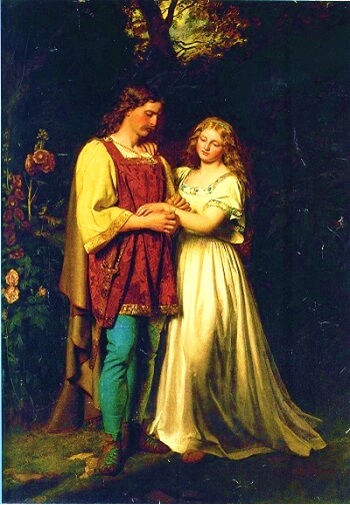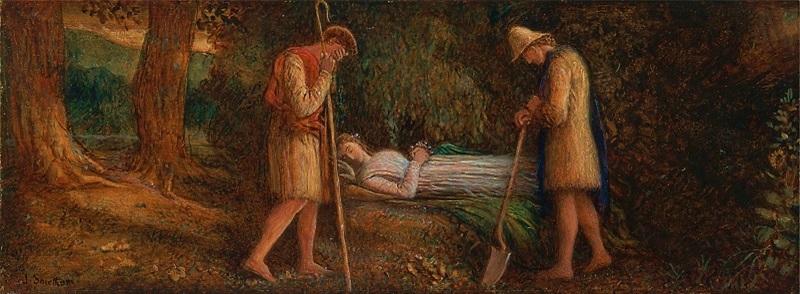Activity 1: Recite the Story Information
- Before and after reading or listening to the story, recite aloud the title and author of the play.
Activity 2: Narrate the Story
- After reading or listening to the story, narrate the events aloud in your own words.
Activity 3: See the Playwright and Poet William Shakespeare
- Study the controversial 'Cobbe portrait' below, which may be a real-life portrait of Shakespeare.
- The portrait contains the Latin phrase 'Principum amicitias!' which means 'The alliances of princes!'
Activity 4: Map the Play
- In the play 'Cymbeline,' the Romans invade Britain.
- Long ago, the Roman empire encompassed much of western and southern Europe. Its most notable capital was Rome, Italy, where Leonatus travels during the play. Find the city of Rome on the map of Italy.
- Trace the general path the Roman soldiers would have to travel from Rome, Italy to invade Britain (UK).
- Point to the locations of Italy and Britain on the map of the world.
Activity 5: Can You Find It?
During the week, zoom in to study the painting, 'Imogen and the Shepherds' from Cymbeline, Act IV, Scene II by James Smetham. Find the following:
- Imogen
- Kidnapped Brothers
- Shepherds
- A Shepherd's Crook
- A Shovel
- Someone Sleeping from a Potion
Activity 6: Build the Sets

- Color, cut out, and laminate the set items on page 88 of 'Third Grade Shakespeare Theater Pages.'
- Set up the scenes in your theater.
Activity 7: Study the Order of Events

- Print and cut out Group A of events on page 89 of 'Third Grade Shakespeare Theater Pages.'
- Using what you know from reading the story, arrange the events in the correct order.
- Glue the group of ordered events to a piece of construction paper.
- Repeat for groups B-E on pages 90-93 of 'Third Grade Shakespeare Theater Pages.'
- Keep these event orderings for the next activity.
Activity 8: Act Out the Events
- Use the event orderings from the prior activity, the theater, the laminated characters, and the sets, to act out each group of events.
- The instructor reads aloud events from group A.
- Children build the appropriate set, add necessary characters, and act out the event, moving the characters and inventing their own dialog.
- Repeat for groups B-E.
 Beautiful Stories from Shakespeare I
Stories from Shakespeare I
Beautiful Stories from Shakespeare I
Stories from Shakespeare I




 Beautiful Stories from Shakespeare I
Stories from Shakespeare I
Beautiful Stories from Shakespeare I
Stories from Shakespeare I






